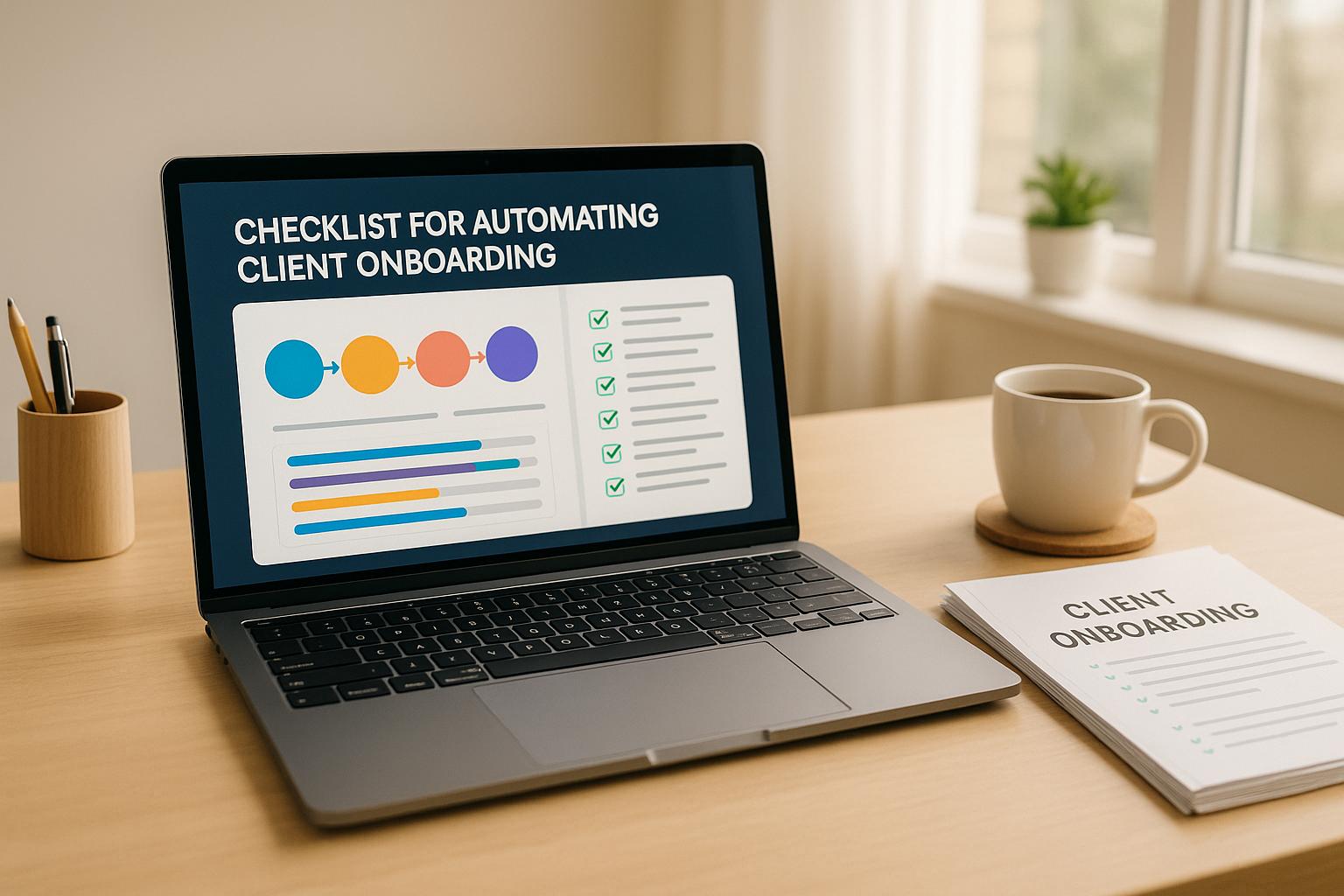Looking to streamline your real estate brokerage operations? Virtual receptionists - either AI-based or human - can handle calls, inquiries, and scheduling, allowing you to focus on growing your business. But which option is right for you?
Key Takeaways:
- AI Virtual Receptionists: Cost-effective ($5-$15/month), available 24/7, and handle routine tasks efficiently. Ideal for high call volumes but lack emotional intelligence.
- Human Virtual Receptionists: More expensive ($15-$25/hour), limited to scheduled hours, but excel in complex, sensitive client interactions requiring empathy.
Quick Comparison Table:
| Feature | AI Virtual Receptionists | Human Virtual Receptionists |
|---|---|---|
| Cost | $5-$15/month | $15-$25/hour |
| Availability | 24/7 | Shift-based |
| Response Time | Instant | May slow during busy periods |
| Task Handling | Routine tasks | Complex, nuanced inquiries |
| Customer Experience | Consistent but impersonal | Empathetic and personalized |
Which to Choose?
- Go with AI if you need 24/7 coverage and cost savings.
- Opt for human receptionists for personalized service and complex scenarios.
Many brokerages find a hybrid approach works best - AI for routine tasks and humans for nuanced interactions.
Related video from YouTube
1. AI-Based Virtual Receptionists
AI-powered virtual receptionists are changing the way real estate brokerages manage client communication. Let’s break down their key features:
Cost Savings
Using a subscription model, AI receptionists help brokerages cut down on staffing and overhead costs. For example, Dialzara has shown how brokerages can maintain professional communication standards while keeping expenses in check.
Around-the-Clock Service
These virtual receptionists are available 24/7, ensuring clients receive support during business hours, after hours, weekends, and even holidays. This means no missed calls, no matter the time or call volume.
Quality of Client Interactions
AI receptionists deliver quick, consistent responses, support multiple languages, and provide accurate information. However, they struggle with handling unexpected or emotionally sensitive inquiries, especially in complex scenarios that require a personal touch.
Task Management
AI receptionists excel at managing routine tasks, such as:
- Collecting and qualifying leads
- Keeping detailed call records
- Scheduling property viewings and meetings
- Delivering instant property details
"AI-powered virtual receptionist services can handle a high volume of calls efficiently, with some platforms offering advanced features like call escalation and knowledge base integration", according to a recent industry report.
To get the most out of AI receptionists, brokerages should:
- Tailor responses to reflect the brand’s tone and style
- Regularly update property information
- Set clear processes for escalating complex issues to human agents
These tools are great for efficiency and scalability, but they have limits. It’s essential for brokerages to evaluate whether AI aligns with their specific client needs and communication strategies.
While AI receptionists shine in handling routine tasks, human receptionists remain crucial for managing more nuanced interactions. We'll dive into this next.
2. Human Virtual Receptionists
Human virtual receptionists add a personal element to real estate operations while working remotely. They come with their own set of strengths and challenges when compared to AI-based solutions.
Cost and Availability
Hiring human virtual receptionists typically costs between $15 and $25 per hour, which is higher than AI alternatives. These costs include expenses like training and maintaining quality standards. Since they work in scheduled shifts, offering round-the-clock availability requires hiring multiple individuals - further driving up costs.
Customer Interaction Quality
Human receptionists shine in areas where emotional intelligence and adaptability are key. They are particularly skilled at:
- Navigating sensitive conversations with empathy
- Responding thoughtfully to complicated questions
- Adjusting their tone and approach based on the situation
"Human virtual receptionists can better handle sensitive client inquiries or negotiations, while an AI-based solution might struggle to provide the same level of emotional support".
Task Management Capabilities
When it comes to tasks that require judgment and flexibility, human receptionists stand out. They can grasp context, manage unexpected challenges, and offer tailored solutions - making them indispensable for handling intricate client needs that AI systems often cannot address effectively.
While human virtual receptionists are more expensive and lack 24/7 availability, their ability to manage complex scenarios and provide empathetic service makes them a strong choice for brokerages that prioritize personalized client care.
Next, we'll weigh the pros and cons of both human and AI receptionists to help you decide what works best for your business.
sbb-itb-db182b0
Advantages and Disadvantages
Let’s break down the key features of AI-based and human virtual receptionists to help real estate brokerages make the right choice for their needs.
| Feature | AI-Based Virtual Receptionists | Human Virtual Receptionists |
|---|---|---|
| Cost | $5-15 per month per user | $15-25 per hour |
| Availability | 24/7 | Shift-based |
| Response Time | Instant | May slow down during busy periods |
| Task Handling | Handles routine tasks well | Excels at complex or nuanced inquiries |
| Customer Experience | Efficient and consistent, but lacks emotional depth | Empathetic and personalized |
| Integration | Easily integrates with systems | Requires onboarding and customization |
Platforms like Upfirst and Dialzara are great examples of AI tools that integrate smoothly with brokerage systems while delivering reliable service quality.
Which Should You Choose?
The best choice depends on your brokerage’s priorities. Here’s a quick guide:
AI-Based Solutions Are Ideal For:
- Brokerages managing high call volumes and needing 24/7 availability
- Firms focused on keeping costs low
- Operations that rely on standardized and repetitive processes
- Teams already equipped with strong digital tools
Human Virtual Receptionists Work Best For:
- Smaller, boutique agencies offering highly personalized service
- Properties requiring in-depth knowledge and tailored responses
- Clients who value human interaction and connection
- Scenarios where emotional intelligence is critical
No matter the choice, it’s essential to implement strong data protection measures to safeguard sensitive client information.
The decision ultimately comes down to balancing efficiency, budget, and the level of personalized care your clients expect. Both options have their strengths - choose what aligns with your brokerage's goals.
Final Thoughts
Deciding between AI-powered and human virtual receptionists is a key decision for brokerages looking to improve operations while balancing expenses, efficiency, and client expectations. Tools like Dialzara show how AI can seamlessly integrate with brokerage systems, offering tailored features to uphold professional communication standards.
AI solutions excel with their ability to scale and provide round-the-clock availability. However, brokerages must prioritize security by implementing measures like encrypted communication, multi-factor authentication, regular audits, and backup protocols. These safeguards help ensure secure and reliable service.
For brokerages that focus on personalized client interactions, especially in luxury real estate, human virtual receptionists bring clear advantages. They are better equipped to manage complex questions and deliver emotionally sensitive responses, which are often critical in high-value or delicate transactions.
Many brokerages find a hybrid approach to be the most effective. AI solutions can handle routine tasks and initial client contact, while human receptionists step in for more complex situations. This method combines the efficiency and consistency of AI with the personal touch of human interaction, ensuring both cost savings and service quality.
Regardless of the chosen solution, successful implementation depends on proper integration and training. Brokerages should establish clear protocols to manage remote work and maintain communication standards. This approach helps ensure consistent service delivery and upholds the professional image crucial in the real estate industry.
FAQs
How much does an AI receptionist cost?
Here’s a quick look at typical pricing tiers for AI receptionists:
| Plan Type | Monthly Cost Range | Features |
|---|---|---|
| Basic | $25-$50 | • Basic call answering • Limited monthly minutes • Standard business hours support |
| Professional | $100-$500 | • 24/7 call handling • Custom AI training • Real-time summaries • Multi-language support |
| Enterprise | $1,000-$3,000 | • Advanced integrations • Unlimited calls • Priority support • Custom voice options |
Dialzara offers plans starting at $25 per month, including real estate-specific templates and automated property info delivery. Upfirst begins at $50 monthly, featuring advanced lead qualification and CRM integration.
Pricing models vary and may include monthly subscriptions, per-minute charges, or per-call fees based on usage. To find the right fit, consider your brokerage's call volume, required features, and budget.


